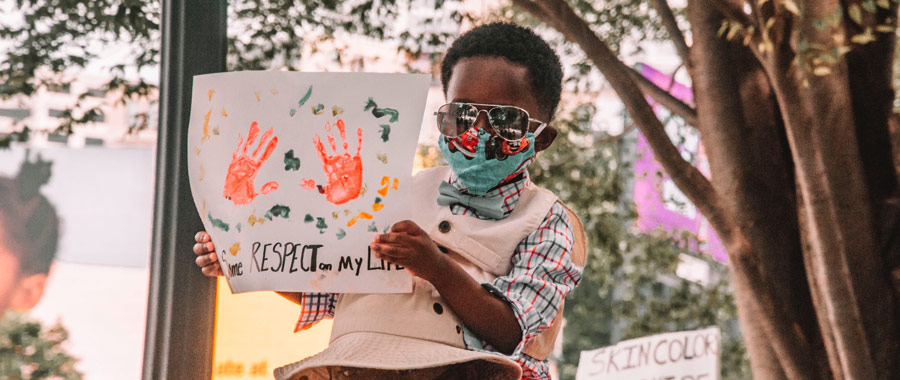The quest for racial healing is a pressing issue that has captured the attention of individuals, organizations, and communities around the globe. In the Bahá’í perspective, discomfort plays a pivotal role in recognizing and addressing systemic racism. Embracing discomfort can facilitate a transformative journey towards deeper understanding and reconciliation. In this exploration, we will delve into various dimensions of the Bahá’í teachings regarding discomfort as an indicator of racial healing, highlighting theoretical underpinnings and practical applications.
Discomfort in the context of racial issues often manifests as a response to challenging conversations, historical injustices, and biases that remain deeply embedded within societies. While these feelings can create unease, the Bahá’í teachings suggest that such discomfort can serve as a catalyst for self-examination and growth. It is crucial to understand that discomfort is not a sign of failure or inadequacy; rather, it is indicative of the complexities inherent in the journey towards unity and justice.
One fundamental aspect of Bahá’í teachings is the principle of oneness of humanity. This tenet posits that all individuals, irrespective of their racial or ethnic backgrounds, are part of a singular human family. Acknowledging this oneness necessitates an exploration of historical and ongoing tensions that stem from racial disparities. Discomfort often arises when individuals confront the reality of systemic inequalities and their own complicity within those systems. This initial unease can lead to a broader recognition of shared experiences and a collective responsibility towards healing.
Equally important is the role of constructive dialogue in facilitating understanding and mitigating discomfort. Engaging in open discussions about race requires individuals to confront their biases and privilege. Bahá’í teachings advocate for listening with empathy and seeking to understand diverse perspectives, fostering an environment where discomfort can be navigated safely. When individuals feel heard and validated, the potential for authentic connections and healing increases significantly. Discussions surrounding racial issues, while often fraught with tension, can ultimately lead to enlightenment and unity.
Discomfort can also be regarded as a poignant reminder of the urgent need for action. Within the Bahá’í framework, individuals are encouraged to translate feelings of discomfort into constructive actions aimed at dismantling systemic racism. This may manifest in various forms, such as advocacy for equitable policies, participation in community-building initiatives, or educational outreach. The transformative nature of discomfort lays the groundwork for meaningful contributions to the broader societal dialogue on race, promoting an inclusive narrative that holds space for healing.
The teachings of Abdu’l-Bahá, a central figure in the Bahá’í Faith, highlight the imperative of embracing discomfort in the pursuit of justice. He emphasized the necessity of engaging with the complexities attached to human relationships—an undertaking that requires individuals to confront their own preconceptions and prejudices. Discomfort serves as a powerful indication of personal growth; it can prompt individuals to seek knowledge, engage in humility, and foster resilience as they endeavor to contribute positively to the fabric of society.
In this reflective journey, one must also acknowledge the significance of community involvement in addressing discomfort. Bahá’í teachings underscore the importance of collective action, wherein individuals unite to promote education, awareness, and justice. Initiatives that encourage collaboration among diverse racial and ethnic groups can foster relationships built on trust, ultimately mitigating feelings of alienation. Discomfort can dissipate when communities come together, sharing experiences, learning from one another, and collectively envisioning a more just and equitable future.
Moreover, the practice of reflection is essential in the Bahá’í approach to navigating discomfort. Individuals are encouraged to introspectively examine their feelings and reactions towards racial issues; this can unearth biases that may otherwise remain unacknowledged. Engaging in this reflective process, often facilitated through prayer or meditation, allows individuals to realign their thoughts effectively. Such contemplation is an integral part of the healing process, transforming discomfort from an obstacle into a vital stepping stone towards enlightenment and empathy.
As the journey towards racial healing continues, it is pertinent to recognize that the road will not always be straightforward. Embracing discomfort may entail trial and error, learning and unlearning deeply ingrained behaviors. Bahá’í teachings advocate for perseverance amidst challenges, emphasizing that growth often occurs in the fringes of discomfort and uncertainty. It is essential for individuals on this path to remain committed to the principles of love, acceptance, and service, continually fostering environments that encourage honesty about racial matters.
In conclusion, the Bahá’í understanding of discomfort underscores its transformative potential in the quest for racial healing. Discomfort is not merely an emotional response, but a profound opportunity for reflection, dialogue, and collective action. By embracing discomfort, individuals can embark on a path of personal and communal growth, contributing to the erasure of systemic inequalities and the promotion of unity and justice within the tapestry of humanity. The Bahá’í teachings provide a rich framework for understanding this dynamic, inviting individuals to engage deeply with their own discomfort in the name of fostering healing and reconciliation in a world that desperately needs it.
